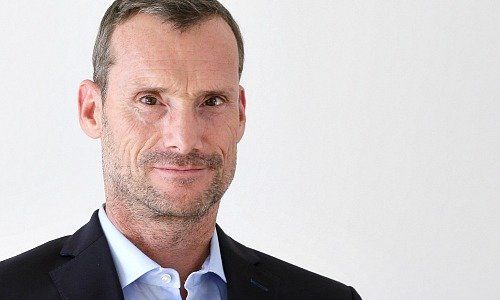Peter Hody: «Climate Politics, It's All About Business, Stupid!»
Switzerland is at the forefront of this lofty new discipline: the alpine nation wants to hit its target of reducing CO2 emissions as it has done until now – by buying carbon credits abroad. That will cost nearly $2 billion, according to WWF estimates. It's still cheaper than rolling out effective measures at home.
The UN-certified emission reductions inevitably leads not to an actual reduction of the CO2 emissions, but is a mathematical bet on how much in greenhouse gases aren't released into the atmosphere in the future. The method has rightly been criticized for its lack of effectiveness.
Meanwhile, the financial industry has taken to climate change awareness and sustainability like a duck to water since the Paris conference. ESG, or environment, social, and governance, SRI, or social responsibility investment, green bonds, impact investing: what elicited little interest from most bankers before has stormed into the hottest trend in finance which no firm can afford to ignore.
«Enter banks to fill the funding gap – and to capture a business opportunity»
The reason is obvious: in Paris, delegates also agreed the so-called social development goals, or SDGs, which attempt to tackle global issues such as poverty, income inequality, and hunger in 17 points. An estimated $3 trillion to $7 trillion would be needed annually to do so – an impossible task considering the hopelessly indebted state of many of the countries in the agreement.
Enter banks to fill the funding gap – and to capture a business opportunity. J.P. Morgan estimates that finance will earn $667 billion in the next ten years with impact investments – or those which look to generate a measurable social or environmental benefit besides a financial return. Against this backdrop, who is surprised to see a fringe area of finance hit the banking mainstream?
«We simply see a huge opportunity to sell old products with a new label»
No wonder the output of these investment products has surged in recent years: «sustainability» is part of the mission statement of any bank, and no investor conference is complete without the topic.
What finance is glossing over is its acute credibility issue: countless providers are simply riding the wave, or «greenwashing». Their products carry the sustainable brand, but in reality are anything but. Or as one finance specialist at a major Swiss bank recently told me: «Sustainability is a lifeline for banks. We simply see a huge opportunity to sell old products with a new label».
«The conflict lays bare the principle of opportunism that banks have long followed»
It doesn't take a huge leap of logic to conclude that banks are simply slapping impact and sustainable labels on their products to boost their profits. A glimpse at the energy sector bears this out: in 2017, global investment in renewable energy sank 7 percent to $300 billion, according to International Energy Agency's «World Energy Investment 2018» report. By contrast, investments in oil and gas climbed 4 percent to $450 billion, and $80 billion flowed into coal mining.
This shows that the the march towards a truly sustainable world view by banks like UBS and Credit Suisse is slow, and that climate change interests are frequently subordinated to simple financing requirements.
The conflict lays bare the principle of opportunism that banks have long followed: where return is to be had, banks will pursue it. At least the finance industry's most recent opportunism coincides with a meaningful role in society. Those who invest sustainably can effect change – and perhaps halt climate change.
Peter Hody is editor-in-chief of finews.ch. He has held several managerial positions at «Cash» and «Stocks», Swiss financial news outlets. Previously, he was a reporter at Associated Press and RTL/ProSieben. Hody studied history and acquired an MBA in Media Management at the Hamburg Media School.
Previous contributions: Rudi Bogni, Peter Kurer, Oliver Berger, Rolf Banz, Dieter Ruloff, Werner Vogt, Walter Wittmann, Alfred Mettler, Peter Hody, Robert Holzach, Craig Murray, David Zollinger, Arthur Bolliger, Beat Kappeler, Chris Rowe, Stefan Gerlach, Marc Lussy, Nuno Fernandes, Richard Egger, Maurice Pedergnana, Marco Bargel, Steve Hanke, Andreas Britt, Urs Schoettli, Ursula Finsterwald, Stefan Kreuzkamp, Oliver Bussmann, Michael Benz, Peter Hody, Albert Steck, Andreas Britt, Martin Dahinden, Thomas Fedier, Alfred Mettler, Brigitte Strebel, Peter Hody, Mirjam Staub-Bisang, Nicolas Roth, Thorsten Polleit, Kim Iskyan, Stephen Dover, Denise Kenyon-Rouvinez, Christian Dreyer, Kinan Khadam-Al-Jame, Robert Hemmi, Anton Affentranger, Yves Mirabaud, Katharina Bart, Frédéric Papp, Hans-Martin Kraus, Gerard Guerdat, Didier Saint-Georges, Mario Bassi, Stephen Thariyan, Dan Steinbock, Rino Borini, Bert Flossbach, Michael Hasenstab, Guido Schilling, Werner E. Rutsch, Dorte Bech Vizard, Adriano B. Lucatelli, Katharina Bart, Maya Bhandari, Jean Tirole, Hans Jakob Roth, Marco Martinelli, Beat Wittmann, Thomas Sutter, Tom King, Werner Peyer, Thomas Kupfer, Peter Kurer, Arturo Bris, Frederic Papp, Claudia Kraaz, James Syme, Peter Hody, Dennis Larsen, Bernd Kramer, Ralph Ebert, Marionna Wegenstein, Armin Jans, Nicolas Roth, Hans Ulrich Jost, Patrick Hunger, Fabrizio Quirighetti, Claire Shaw, Peter Fanconi, Alex Wolf, Dan Steinbock, Patrick Scheurle, Sandro Occhilupo, Claudia Kraaz, Will Ballard, Michael Bornhaeusser, Nicholas Yeo, Claude-Alain Margelisch, Jean-François Hirschel, Jens Pongratz, Samuel Gerber, Philipp Weckherlin, Anne Richards, Michael Welti, Antoni Trenchev, Benoit Barbereau, Pascal R. Bersier, Shaul Lifshitz, Klaus Breiner, Ana Botín, Michel Longhini, Martin Gilbert, Jesper Koll, Ingo Rauser, Carlo Capaul, Claude Baumann, Markus Winkler, Konrad Hummler, Thomas Steinemann, Karin M. Klossek, Michael Welti, Christina Boeck, Michel Longhini, Guillaume Compeyron, Miro Zivkovic, Alexander F. Wagner, Eric Heymann, Christoph Sax, Felix Brem , Jochen Moebert, and Jacques-Aurélien Marcireau.
- << Back
- Page 2 of 2



























